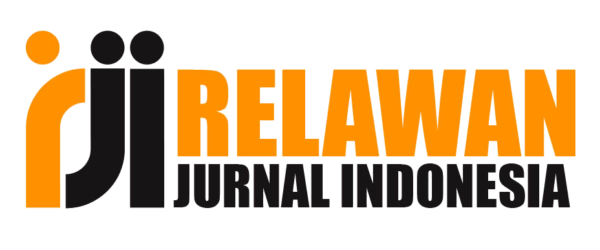Implementation of game-based learning in vibration and wave puzzle to increase students’ interest and motivation in physics learning
Abstract
Keywords
Full Text:
PDFReferences
I. W. Redhana, K. Widiastari, A. Samsudin, and Irwanto, “Which is more effective, a mind map or a concept map learning strategy?” Cakrawala Pendidikan, vol. 40, no. 2, pp. 520–531, Jun. 2021, doi: 10.21831/cp.v40i2.33031.
H. J. Banda and J. Nzabahimana, “Effect of integrating physics education technology simulations on students’ conceptual understanding in physics: A review of literature,” Phys Rev Phys Educ Res, vol. 17, no. 2, Dec. 2021, doi: 10.1103/PhysRevPhysEducRes.17.023108.
N. Fitriyana, A. Wiyarsi, J. Ikhsan, and K. H. Sugiyarto, “Android-based-game and blended learning in chemistry: Effect on students’ self-efficacy and achievement,” Cakrawala Pendidikan, vol. 39, no. 3, pp. 507–521, Oct. 2020, doi: 10.21831/cp. v39i3.28335.
J. H. Panggabean, M. S. Defi Siregar, and J. Rajagukguk, “The Effect of Teams Games Tournament (TGT) Method on Outcomes Learning and Conceptual Knowledge in Physics Science,” in Journal of Physics: Conference Series, IOP Publishing Ltd, Mar. 2021. doi: 10.1088/1742-6596/1819/1/012047.
N. H. Ariffin, M. S. M. Azmi, and N. A. Rahman, “The development of ‘Monolektrik Kit’ for the topic on Series and Parallel Circuits for secondary school Science and its’ usability among Physics trainee’s teachers,” in Journal of Physics: Conference Series, Institute of Physics, 2022. doi: 10.1088/1742-6596/2309/1/012066.
H. Zeng, S. N. Zhou, G. R. Hong, Q. Y. Li, and S. Q. Xu, “Evaluation of interactive game-based learning in physics domain,” Journal of Baltic Science Education, vol. 19, no. 3, pp. 484–498, 2020, doi: 10.33225/jbse/20.19.484.
A. Cardinot, V. McCauley, and J. A Fairfield, “Designing physics board games: A practical guide for educators,” Phys Educ, vol. 57, no. 3, May 2022, doi: 10.1088/1361-6552/ac4ac4.
P. Luarn, C. C. Chen, and Y. P. Chiu, “The Influence of Gamification Elements in Educational Environments,” International Journal of Game-Based Learning, vol. 13, no. 1, 2023, doi: 10.4018/IJGBL.323446.
H. Mulyastuti, Sutopo, and A. Taufiq, “Identification of high school students’ problem-solving skills on rotational dynamics,” in Journal of Physics: Conference Series, Institute of Physics Publishing, Mar. 2019. doi: 10.1088/1742-6596/1171/1/012028.
E. V. Malicoban, J. F. Bulado, D. A. A. Soriano, A. B. L. Monte, and I. C. V. Mordeno, “Development of a STEM board game electriciladders for grade 8 students,” in Journal of Physics: Conference Series, IOP Publishing Ltd, Apr. 2021. doi: 10.1088/1742-6596/1835/1/012030.
M. G. Romanvican, Mundilarto, Supahar, and E. Istiyono, “Development learning media based traditional games engklek for achievements mastery of the material and tolerance attitude,” in Journal of Physics: Conference Series, Institute of Physics Publishing, Jan. 2020. doi: 10.1088/1742-6596/1440/1/012044.
S. D. Aji, R. D. Aprianto, A. G. Abdullah, and M. N. Hudha, “Physics Education (PhyEdu): Mechanical wave media for physics learning,” in Journal of Physics: Conference Series, IOP Publishing Ltd, Dec. 2019. doi: 10.1088/1742-6596/1402/6/066068.
N. Azizah, E. W. Nengsih, L. Wati, Rahimah, and L. R. Nastiti, “The perspective on monopoly as media in physics learning by using teams’ games tournament,” in Journal of Physics: Conference Series, IOP Publishing Ltd, Jan. 2021. doi: 10.1088/1742-6596/1760/1/012015.
S. Oktaweri, Festiyed, and D. Djamas, “Curriculum analysis in developing interactive multimedia teaching materials scientific model assisted games for physics learning,” in Journal of Physics: Conference Series, Institute of Physics Publishing, May 2019. doi: 10.1088/1742-6596/1185/1/012118.
Suratno, Muazza, R. Murboyono, and D. Guspita, “What is the effect of learning models and interests on study results?” Cakrawala Pendidikan, vol. 42, no. 3, pp. 804–814, Oct. 2023, doi: 10.21831/cp.v42i3.52342.
V. Tinedi, Y. Yohandri, and D. Djamas, “How Games are Designed to Increase Students’ Motivation in Learning Physics? A Literature Review,” in IOP Conference Series: Materials Science and Engineering, Institute of Physics Publishing, Apr. 2018. doi: 10.1088/1757-899X/335/1/012065.
K. Bainbridge et al., “Does embedding learning supports enhance transfer during game-based learning?” Learn Instr, vol. 77, Feb. 2022, doi: 10.1016/j.learninstruc.2021.101547.
D. Dziob, “Board Game in Physics Classes—a Proposal for a New Method of Student Assessment,” Res Sci Educ, vol. 50, no. 3, pp. 845–862, Jun. 2020, doi: 10.1007/s11165-018-9714-y.
Subanji, T. Nusantara, Sukoriyanto, and S. A. A. Atmaja, “Student’s creative model in solving mathematics controversial problems,” Cakrawala Pendidikan, vol. 42, no. 2, pp. 310–326, 2023, doi: 10.21831/cp. v42i2.55979.
F. A. Rosyid, S. Arjo, N. Suminten, D. P. Sandjaja, and N. Makdiani, “The Development of Android-Based Physical Learning Media Brain Quiz Game Assisted on Momentum and Impulse Materials,” in Journal of Physics: Conference Series, Institute of Physics Publishing, Jun. 2020. doi: 10.1088/1742-6596/1491/1/012027.
DOI: https://doi.org/10.17509/wapfi.v10i1.79371
Refbacks
- There are currently no refbacks.
Copyright (c) 2025 WaPFi (Wahana Pendidikan Fisika)

This work is licensed under a Creative Commons Attribution-ShareAlike 4.0 International License.
The Journal Wahana Pendidikan Fisika http://ejournal.upi.edu/index.php/WapFi/ is licensed under a Creative Commons Attribution-ShareAlike 4.0 International License
The Journal WaPFi (Wahana Pendidikan Fisika).
All rights reserverd. pISSN 2338-1027 eISSN 2685-4414
Copyright © Faculty of Mathematics and Science Education (FPMIPA) Universitas Pendidikan Indonesia (UPI)










